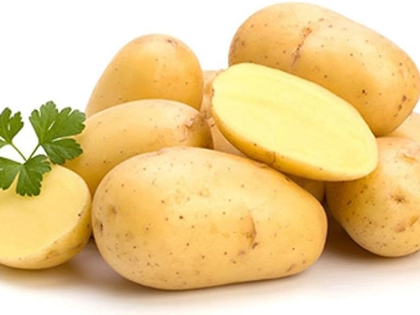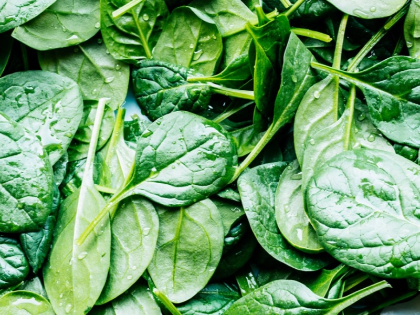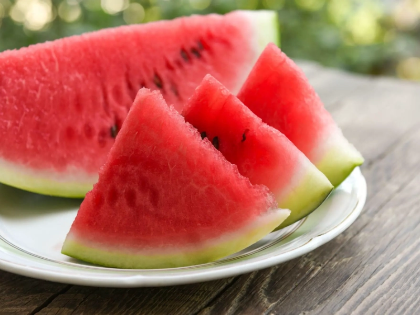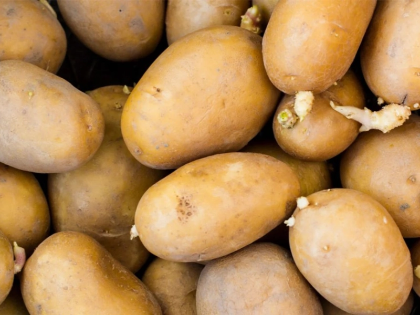Boiling potatoes provides a good supply of potassium, phosphorus, and vitamin C. They offer a sizable amount of fibre as well. They do, however, contain several substances that, when consumed in large numbers, can be toxic. These substances, which contain solanine, are known as glycoalkaloids. It is recommended to cook potatoes with the skin on to reduce your exposure to harmful toxins.
They are an excellent potassium supplier.
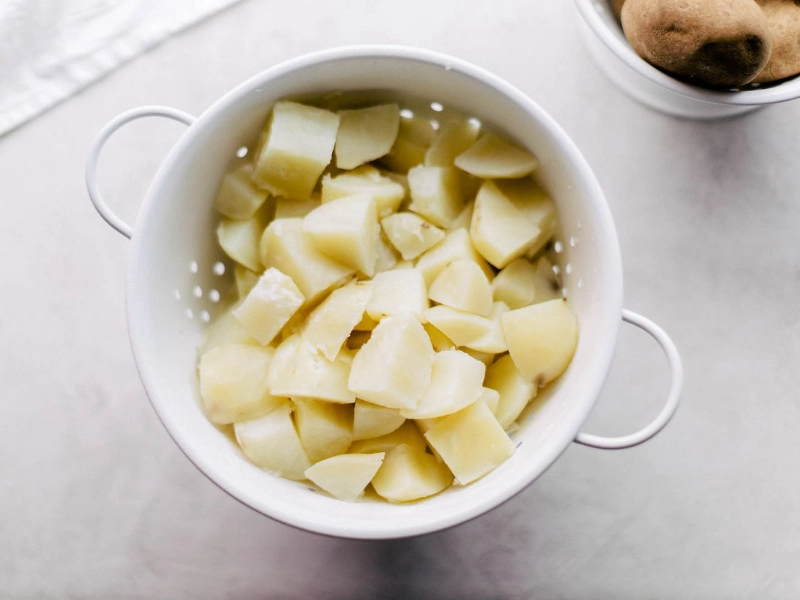
Advertisement
Potassium, which supports the body's electrolyte balance, is abundant in potatoes. They also contain thiamin, niacin, and vitamin B-6. One large boiled potato has half the daily recommended potassium intake. Additionally, it contains some dietary fibre, which is crucial for the functioning of the heart and digestive system.
Use the proper cooking techniques because cooking potatoes might change their nutritional value. Boiling and steaming are both good ways to lower potassium levels, but soaking is superior. Peeled and chopped potatoes are soaked for an hour or overnight in water in a basin as part of a straightforward process called soaking.
Soaking potatoes is a great way to lower the potassium content of your food if you need to limit your potassium intake. Compared to fast boiling, which only gets rid of half the potassium, this procedure is more efficient. It's ideal to use a sizable pot for this process and to replace the water frequently.
A good provider of phosphorus

Potassium and phosphorus, which are critical for healthy bones, are abundant in potatoes. They are a significant source of calcium and assist in controlling blood pressure. Additionally, they have significant antioxidant concentrations, which help lower blood sugar and cholesterol. Boiling potatoes can supply about 16% of the daily requirement for potassium consumption.
Vitamin C, a water-soluble vitamin that is vital for your body, is abundant in boiled potatoes. Additionally, they supply one-fourth of your daily needs of thiamin, niacin, and riboflavin. Unpeeled, a large boiled potato has half the daily recommended quantity of vitamin B-6.
In addition, purple potatoes are a fantastic source of polyphenols, which have anti-inflammatory effects and can slow the growth of cancer cells. These polyphenols, which are also referred to as flavonoids, make up the majority of the potato's phenolic content. They have strong antioxidant properties that can fend off oxidative stress.
They contain a lot of vitamin C.
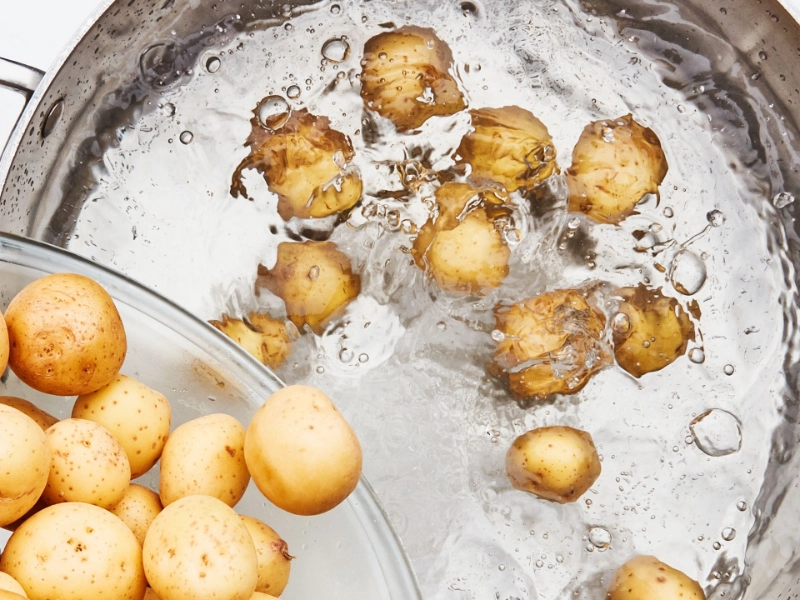
Potatoes include vitamin C, which can strengthen your immune system and defend against free radicals. About 10 milligrammes of vitamin C, or one eighth of an adult's daily requirement, can be found in a medium-sized boiled potato. Furthermore, potatoes provide dietary fibre, iron, potassium, calcium, and magnesium.
To benefit from the nutrients in potatoes, you must take care to correctly prepare them. The most nutrient-dense ways to cook them are by baking, steaming, or microwaving. These techniques reduce exposure to water, which can result in nutrient loss. In particular, cooking a potato can lower its mineral content by up to 75%.
Along with potassium, boiling potatoes is a wonderful source of phosphorus and magnesium, both of which are vital for strong bones. A boiled potato also contains a significant amount of folate and B-complex vitamins. These vitamins are crucial for metabolism, blood cell development, and energy production. Folate is very important for expectant mothers and their unborn children.
They contain a lot of vitamin B-5.
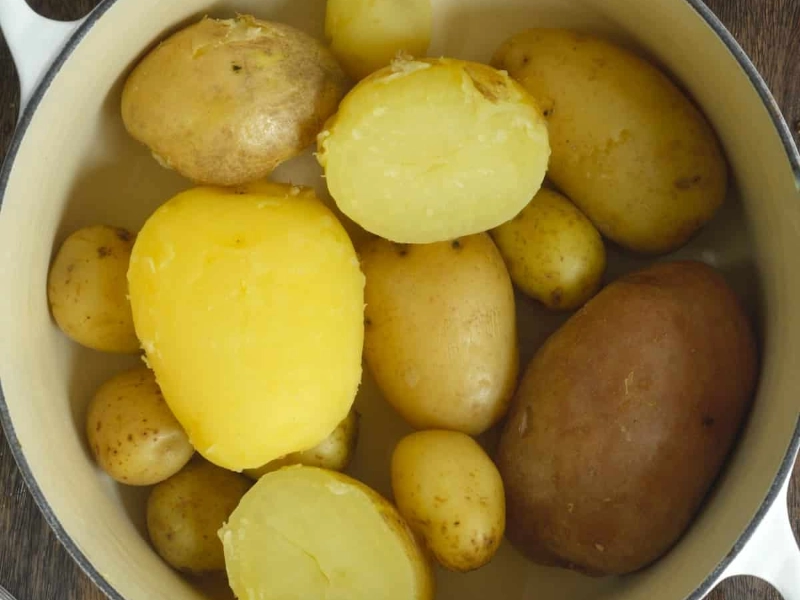
In addition to providing potassium and folate, potatoes are high in vitamin B5. They can enhance your mood and safeguard the health of your eyes. Additionally, they include the phytonutrients lutein and chlorogenic acid, which lessen the harm done by free radicals. They also include much of the amino acid glutamine. This is a crucial component in the methylation process, which is essential for healthy metabolism and brain function.
Additionally, potatoes are a significant source of copper and phosphorus, two nutrients necessary for the growth of bones. One medium-sized boiled potato has 293 micrograms of phosphorus and 69 milligrammes of copper, which is more than enough to satisfy a person's daily needs for these nutrients.
They are also a rich source of potassium, calcium, magnesium, and folate and low in salt. By promoting vasodilation, they can also lower blood pressure, lowering the risk of heart disease and preventing osteoporosis. Due to their antioxidant characteristics, they can also prevent the growth of tumours and inhibit cancer cells.
Advertisement










